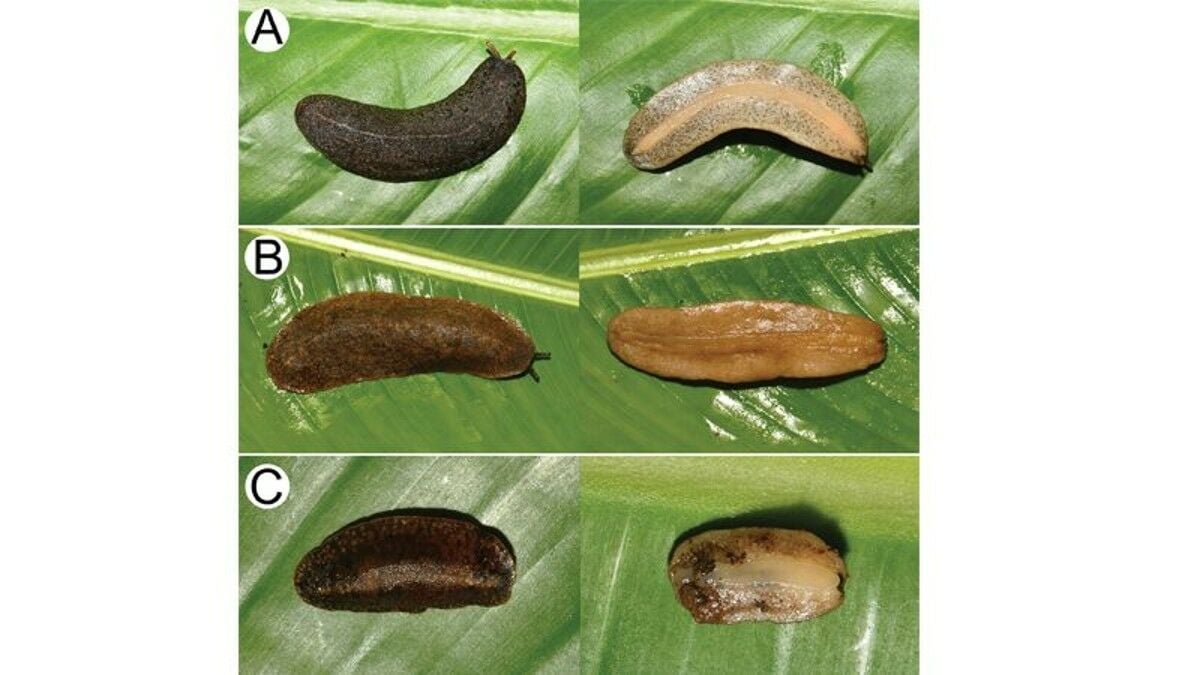New land slug species discovered in Thailand

Two newly discovered species of land slugs have been identified in Thailand, prompting further research on their conservation. The Animal Systematics Research Unit at Chulalongkorn University revealed these findings yesterday, September 23.
Land slugs, also known as banana slugs in central Thailand, belong to the same group as snails but have lost their shells completely. Locally, they are known by various names; in the northeastern region, they are called maeng lin ma, in the north, khee teuk fah, and in the south, tak fah.
These creatures are typically found in decaying leaf piles, under logs, or in areas covered with debris, in both natural and disturbed habitats.
The research team, led by doctoral student Bowornlak Mitchueachart under the supervision of Professor Somsak Panha from the Department of Biology, Faculty of Science at Chulalongkorn University, has studied the genus Valiguna in Thailand. Previously, three species had been reported, including Valiguna siamensis (Martens, 1867), which is distributed throughout Thailand, Myanmar, and Laos.
The new study, however, has identified two additional species of land slugs. The first, Valiguna semicernina Mitchueachart & Panha, 2024, known as the “smooth-backed banana slug,” is found in eastern Thailand, Cambodia, and Myanmar. The second, Valiguna crispa Mitchueachart & Panha, 2024, referred to as the “Khamin Cave banana slug,” is exclusive to Khamin Cave in Surat Thani province.
Given the similar external appearance of these slugs, distinguishing between species requires examining internal organs and DNA-based evolutionary trees. This meticulous approach led to the discovery of the two new species.
These findings enhance the understanding of land slugs in the family Veronicellidae and highlight the need for further research into their morphological and genetic diversity in Southeast Asia. Such studies are crucial for developing comprehensive species lists to guide conservation and biodiversity management efforts in the future, reported KhaoSod.
In related news, the Coastal Aquaculture Research and Development Centre in Trang has successfully bred over 20 species of clownfish, commonly known as Nemo fish, this year, resulting in sales surpassing those of the previous year and generating nearly 1 million baht in revenue.
Latest Thailand News
Follow The Thaiger on Google News:


























